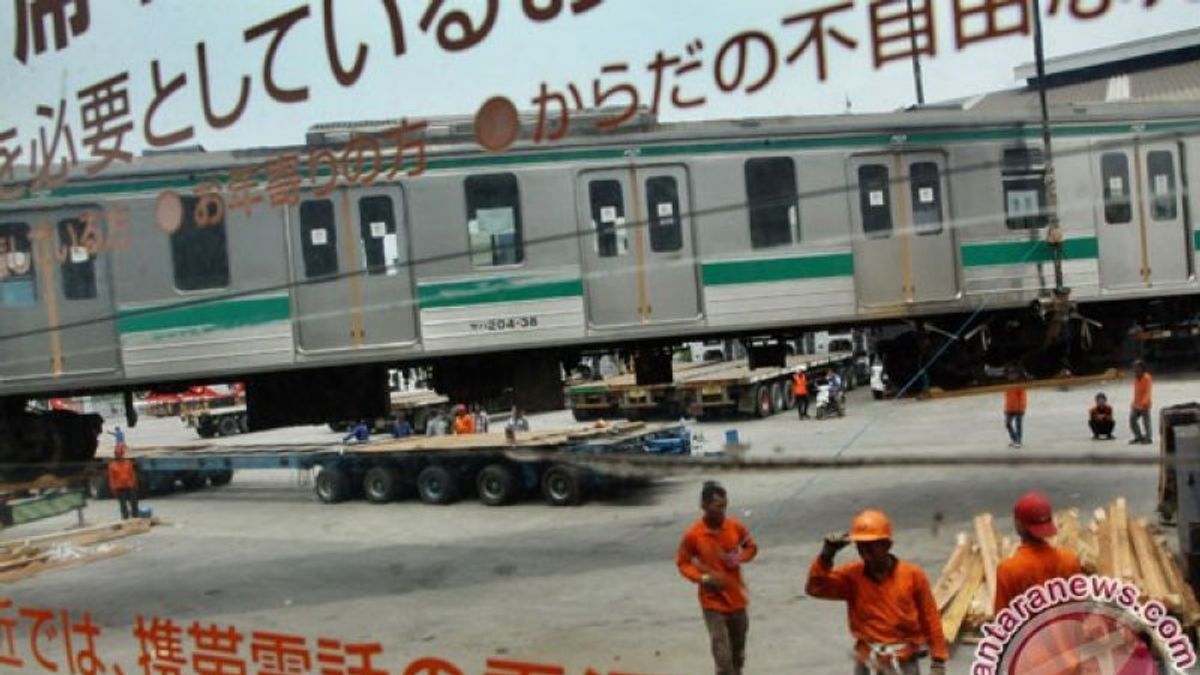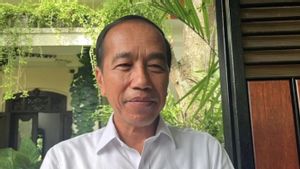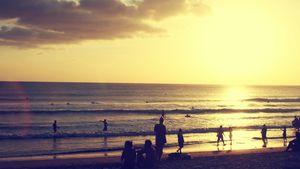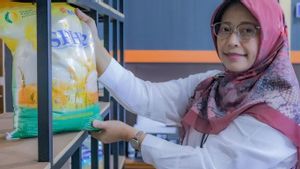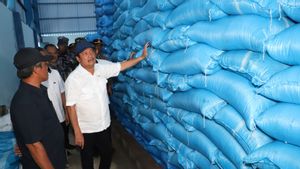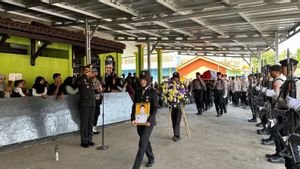JAKARTA The purchase of a used Electric Rail Train (KRL) from Japan by PT Kereta Commuter Indonesia (KCI) has sparked a polemic. The Ministry of Industry firmly refuses. Why should it be imported if there are domestic companies that are able to produce trains?
A number of countries such as Bangladesh, the Philippines, Tanzania, and Zambia are willing to use the services of PT Industri Kereta Api (INKA) to meet their train needs.
The process did take 2-3 years, but this is not a problem as long as there is a structured planning since several years earlier.
"If suddenly it will be difficult, it should have been planned in advance and gave the domestic industry the opportunity to produce," said Secretary General of the Ministry of Industry Dody Widodo as reported by Antara.
So, when the train enters its outdated age, there is already a new train as its replacement.
Unlike today, KCI on March 9, 2023 has indeed signed a purchase contract for 16 Electric Rail Trainsets from PT INKA. However, the train has only been completed for about 2-3 years, while 10 trainsets have entered their outdated age this year and 19 other trainsets by 2024.
As a solution, the Minister of Industry Agus Gumiwang Kartasasmita will add new technology or features to the old train or retrofit.
The process is still under the BPKP audit (Financial and Development Supervisory Agency). We'll see from the results of the audit how much we can retrofit. If the retrofit capability is also limited, then the choice is retrofit and import. In essence, we still prioritize retrofitting," Agus told the media crew on March 9, 2023.
Agus had previously emphasized that the import of used KRL from Japan should not be repeated. Train needs planning should be more structured and systematic, medium-term and long-term.
President Joko Widodo (Jokowi) alone has emphasized that all SOEs should increase the level of domestic components. Do not let it still use imported goods.
Unika Soegijapranata, Djoko Setijowarno, also believes that producing railway facilities for yourself is expensive at the beginning, but cheaper in treatment. On the other hand, the price of train imports is indeed cheaper, but expensive in its care.
The purchase price of 16 new trainsets from PT INKA is almost IDR 4 trillion. Meanwhile, the purchase price of 10 used KRL trainsets from Japan is only IDR 150 billion. Indeed, even though it is used, the age of using trains can still be up to 15 years.
"However, PT KCI employees who take care of commuter lines every day complain that looking for spare parts are no longer produced in Japan, they finally have to carry out intimidation," Djoko told VOI on March 10, 2023.
Not to mention about passenger facilities. Still need adjustment. Trains in Japan are equipped with conditioning and heating facilities, in Indonesia what is needed is room conditioning.
"So it still takes months to reset before the train operates," he added.
What is more fundamental is the attitude of love for the country. By using products made in Indonesia, it shows pride in domestic products.
"We love the sign. Loving domestic products means buying, using, and utilizing products made by companies or local Indonesian business groups," he said.
Djoko understands his current choice is not easy. If an outdated train is not operated, there will be many abandoned KRLcommuter line passengers. If operated, passenger safety can be threatened.
In the transportation sector, safety is the main thing that must be considered and non-negotiable. So, even though you have to import, Djoko hopes that this will only be a temporary solution.
"It's important to import, don't go too far, it's the same as not appreciating domestic products and the ability of the nation itself," he said.
Indonesia has been attracted to used Japanese train products since 2000. Initially, Japan donated 72 KRL Toei series 6000. Even though it has been operating for 32 years in its home country, this train is proven to be still fit and can last for 16 years.
Very different from imported trains from Germany and the Netherlands, which already existed in Indonesia, but were more prone to damage.
Then, as the number of train users increased, Indonesia in 2004 imported the used 103 series train which was made around 1966-1967. Apart from being durable, the price of used Japanese trains is also much cheaper than the price of used European trains.
The cheap price is certainly a special consideration considering that the tariff for train transportation in Indonesia at that time was only Rp. 2,000. So, it can adjust the Public Service Obligation (PSO).
But now, after PT KCI decided to buy a new train, Djoko believes that the PSO structure and KRLCommuter Line rates must be evaluated because the purchase value of IDR 4 trillion certainly has a financial impact on PT KCI.
"Don't let the tariff never increase, even though the operating costs (BIOP) of trains increase every year. How much subsidies must be issued," added Djoko.
Train passengers are projected to continue to increase from year to year. In 2022 alone, the number of commuter line users in Jabodetabek reached 215.05 million people.
Meanwhile, the commuter line tariff still refers to the Minister of Transportation Regulation Number 35 of 2016. The Jabodetabek KRL travel rate is 1.5 km, the first is Rp. 3,000 / person with a PSO rate of Rp. 3,250 and an operator rate of Rp. 6,250.
As for the next 10 km tariff (multiples) Rp1,000 per person, the PSO rate is Rp. 1,500 and the operator rate is Rp. 2,500.
The English, Chinese, Japanese, Arabic, and French versions are automatically generated by the AI. So there may still be inaccuracies in translating, please always see Indonesian as our main language. (system supported by DigitalSiber.id)
